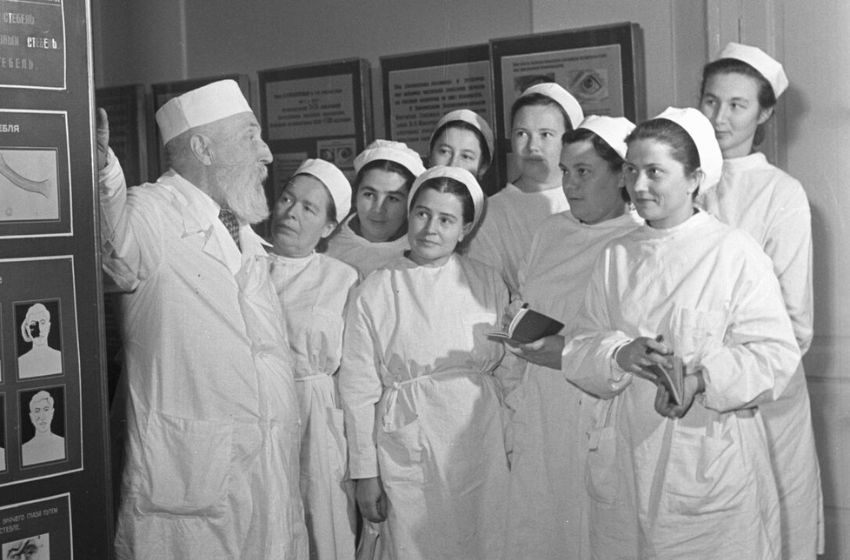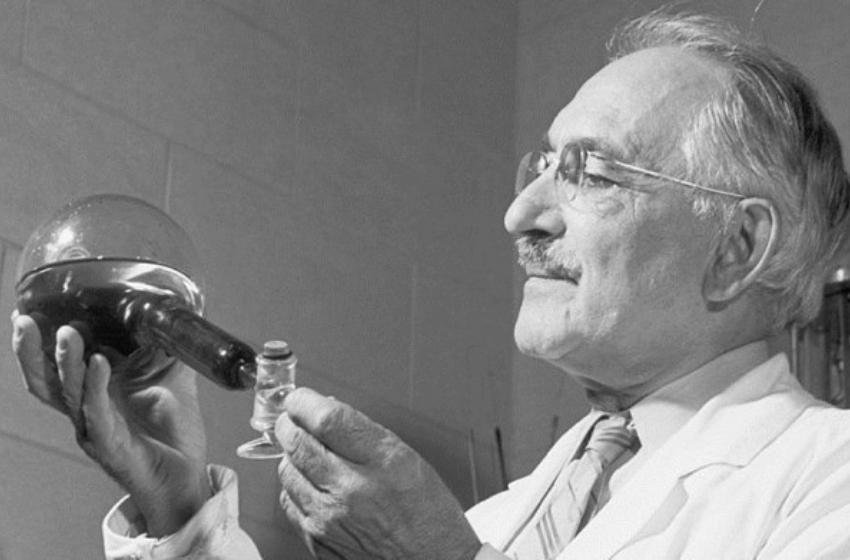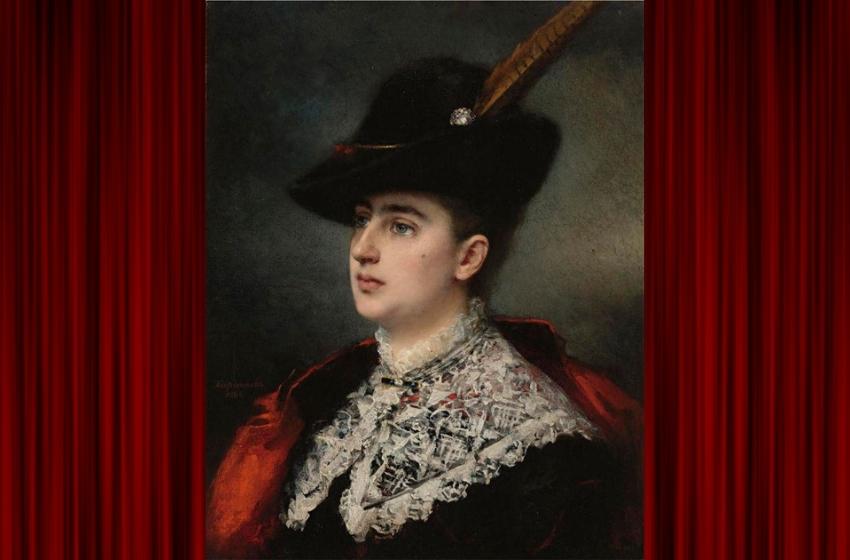Do you know that the first electrocardiogram of a person in the history was carried out by an Odessan? A genius of medicine from Odessa, who died at only 63 years and was named the "Russian Eintehoven", managed to leave an indelible mark on the history of science, in particular: electrophysiology and electrocardiography.
Alexander Filippovich Samoilov (Abram Fishelevich Shmul) was born on March 26 (April 7 in a new style) in 1867 in Odessa. The head of the family died suddenly, leaving his wife, Eva Markovna, with five children in her arms. The hardworking and energetic woman managed to give her children a good education. The eldest son Alexander became a great physiologist, and his brother Yakov became a professor of mineralogy and crystallography at Moscow University.

Right: Alexander and Jacob
After graduating from high school, he entered the Physics and Mathematics Faculty of Imperial Novorossiya University, but without graduating from it, decided to go to medicine and enrolled in a medical Faculty of the University of Dorpat (now Tartu), from which he graduated in 1892 with a Doctor of Medicine diploma.

Right: Imperial Novorossiya University. Odessa
In the same year, he defended dissertation "On the fate of iron in the animal nizme (Uber das Schicksal des Eisens im thierischen Organismus, Diss., St Petersburg, 1892), came to work in the laboratory of the great Russian physiologist I.P. Pavlov, studying with him the physiology of chewing. It was under his leadership that he he developed as a scientist-physiologist. In 1925 he wrote to Pavlov:
How vividly I remember everything I experienced in my youth in your laboratory halls. Now, more than 30 years have passed since then, I am myself approaching old age and I give it well I realise that it was in your laboratory that I was became a man. Everything else was already going by itself.
Alexander Samoilov

In 1982, he was sent to Tobolsk to fight the cholera epidemic that broke out there. But still, scientific activity was for him prestigious, and in 1894 he accepted the offer work in the laboratory of I.M. Sechenov in Moscow the university to continue scientific research. Gradually the main area of ​​his scientific interests became electrophysiology.
In 1903, the Kazan period was the most fruitful and long-term in the activity of a scientist. Samoilov is elected as a professor of the department of zoology, comparative anatomy and physiology at the Faculty of Physics and Mathematics of Kazan University, where he created and headed the most perfected in Russia and one of the best in Europe electrophysiological laboratories.
In 1904, he was invited to become the head of the Department of Animal Physiology of the Physics and Mathematics Faculty of Moscow University and lectures at the same time in Kazan and Moscow. By that time, the main instrument for studying electrophysiological processes was the capillary electrometer, which Samoilov not only thoroughly studied, but also improved in many ways by increasing the mobility of the capillary electrometer, which made it possible to record curves reflecting electrical processes in the heart of the frog, without correction and long-term correction of curves, as was before him.
He designed a photographic recording apparatus with a fast-moving drum, on which electrical phenomena in the heart muscle could be reproduced on photographic film or photographic paper. His electrograms, together with the mechanical curves of the atria and ventricles, illuminated all the main phases of the frog's heart.
In 1904, Samoilov personally met Willem Einthoven at the VI International Congress of Physiologists in Brussels, and from this period their active scientific cooperation and personal friendship began.

In 1906, for the first time in Russia, in his laboratory in Kazan, Samoilov began to work with Einthoven's string galvanometer, which was significantly superior in its capabilities to a capillary electrometer. The first electrocardiogram in Russia was recorded by Samoilov of a patient with mitral stenosis in the clinic of internal diseases of Professor Aleksey Nikolaevich Kazem-Bek (Kazan). And already in 1909, the first guide to electrocardiography in German was published "Elektrokardiogramme".

Right: Alexander Samoilov
Thanks to Samoilov's work, in 1922, by order of Lenin, one of the first Siemens electrocardiographs, weighing only 11 kg, was purchased for a government sanatorium. In 1927, in connection with the death of Einthoven, Leiden University invited Samoilov to head his department.
The last 10 years of Samoilov's life were devoted to the study of the main issues of neuromuscular physiology, electrophysiology and chemistry of neuromuscular inhibitory transmission. Samoilov actively participated in the international scientific life, spoke at many international conferences, lectured in Russia, Europe (including at the invitation of Einthoven in 1922 at Leiden University in Holland, where he worked).

1 - Einthoven, 2 - Byrne, 3 - Sturm von Louvain; Samoilov - fourth from the right
He was also friends and collaborated with the famous German neurohistologist O. Vogt, American scientists W. Cannon, J. Fulton, the great cardiologist P. White, who was also an enthusiast for studying the electrophysiology of the heart.

A.F.Samoilov and I.P. Pavlov - in front of the group
Alexander Samoilov was the author of 115 printed works devoted mainly to the problems of physiology. However, his interests were not limited to physiology. He was the chairman of the music circle, wrote a number of works and lectured to professional musicians on the theory of music, the physiology of acoustics, the history of musical notation, the emergence of which he associated with the work of muscles. Famous musicians Rachmaninov, Taneyev and others were his listeners and admirers.
Samoilov died suddenly on July 22, 1930, at the age of 63, due to his first and only heart attack. He was buried in Moscow at the Vvedenskoye cemetery.

Without a doubt, A.F. Samoilov was far ahead of his time. He carried out the fundamental research that laid the foundation for modern theoretical and clinical electrocardiography. Thanks to his work, Russia became the second homeland of electrocardiography, and all further successes in this area are based on the fundamental research of Einthoven and Samoilov.
In conclusion, Alexander Samoilov's life can be fully attributed to his own words:
"Not a single thought disappears in a cultured society. In the spiritual wealth and material values ​​that we will pass on to future generations, everyone has his share, and happy is the one who did not ruin, did not squander those spiritual resources that were meted out by nature, which gave him the opportunity to participate in the total amount of the joyful life of the present and future generations"





















